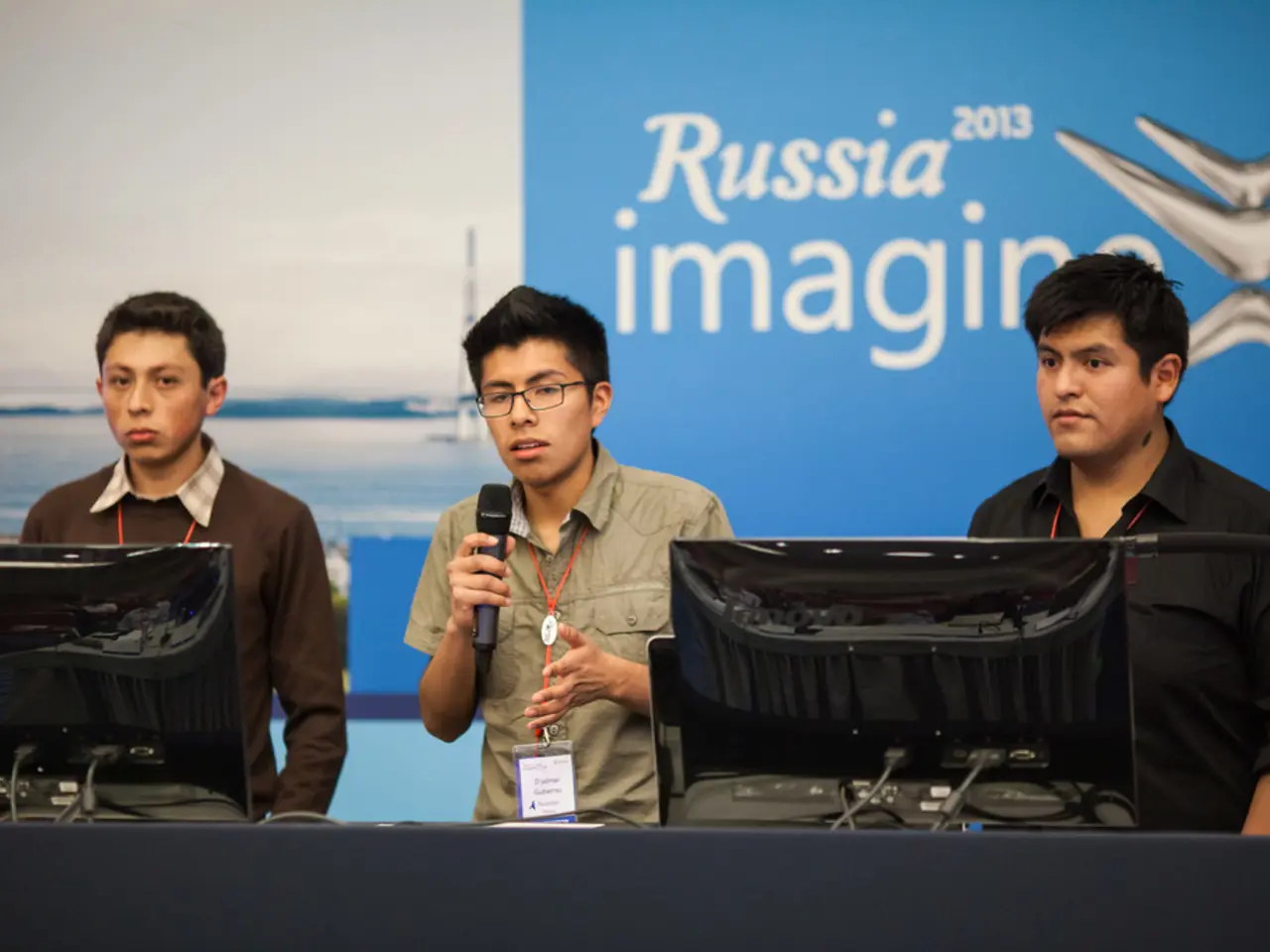Bridging Africa's Technological Skill Deficit through Artificial Intelligence Education
In the rapidly evolving digital landscape, Africa is making strides in harnessing the power of Artificial Intelligence (AI) to tackle its tech talent shortage and drive economic growth.
Partnerships between tech giants and educational institutions are opening doors for widespread skill-building, encouraging new ideas, and fostering innovation across the continent. Microsoft, for instance, launched an initiative in South Africa in January 2025 with the goal of equipping one million South Africans with digital skills by 2026.
AI training programs are proving to be a game-changer in addressing Africa's tech talent shortage. These programs focus on delivering up-to-date, hands-on training that prepares individuals for in-demand roles. Ghana's "AI Africa" program and Microsoft's continental efforts are providing free AI upskilling, including deep learning, prompt engineering, and cybersecurity skills, coupled with financial support to overcome poverty barriers.
Embedding AI education in universities is another key strategy. In Ghana, efforts are underway to target 25% AI course adoption by 2025, preparing graduates with relevant skills to fill the large gap identified, such as South Africa’s shortage where 92% of AI/data science positions remain unfilled and many trained professionals consider emigration.
AI career tools, such as those deployed by Nigeria's CDIAL, analyze labor market data to personalize skill development and job matching, tackling youth unemployment, especially in countries like South Africa and Kenya where youth unemployment is very high and education often doesn’t align with market needs.
Cultivating human-centric skills complementary to AI, such as creativity, leadership, and critical thinking, ensures workers can leverage AI rather than be displaced by automation. Large-scale innovation hubs, like Ghana’s Ghana-UAE Technology Hub, can centralize talent development and attract investment, positioning Africa as a competitive AI-driven economy.
However, challenges remain. Improving digital infrastructure, internet access, and tailored policy frameworks are crucial to support scalable, inclusive AI education and enable local professionals not just to be trained but to lead innovation and entrepreneurship in AI.
Despite these challenges, AI-trained professionals are driving innovation and economic growth across Africa. In agriculture, Shamba Records has empowered over 50,000 farmers with AI-based tools for smart credit and market access. In logistics, a Ghanaian AI startup helps freight companies in 14 African nations increase profits and speed up cross-border shipping. In healthcare, Ubenwa Health developed an AI app that detects infant asphyxia with 88% accuracy.
AI adoption in banking has led to impressive gains, with automating over 10 processes boosting customer satisfaction by 20%, reducing operational processing times by 30%, and increasing monthly new account openings by 2.5% on average. In Rwanda, Zipline's AI-powered drones have cut blood delivery times by 61% and reduced blood unit expirations by 67%.
By 2030, AI could generate over 3 million jobs across African economies. AI-trained professionals are reshaping Africa's economy by bringing fresh solutions to areas like finance, agriculture, healthcare, and logistics. They are helping businesses streamline operations, make smarter decisions, and build technologies that tackle local challenges effectively.
In conclusion, AI training programs are playing a vital role in Africa's digital transformation. By equipping individuals with the knowledge and tools to succeed in an AI-powered economy, these programs are not just boosting economic growth - they're also empowering the continent to address major social and economic hurdles using advanced technology. The African Union's Continental AI Strategy provides a roadmap for addressing issues like ethics, infrastructure, and capacity building, paving the way for Africa to emerge as a global tech leader.
- The startup ecosystem in Africa is being bolstered by digital inclusion initiatives, such as those offering skills training in AI, as seen with Microsoft's South African program aiming to equip one million people with digital skills by 2026.
- AI-driven education and self-development are crucial components of career-development, particularly in the fields of technology, as evidenced by the AI Africa program in Ghana that offers free AI upskilling, including deep learning, prompt engineering, and cybersecurity skills.
- To ensure the long-term success of digital inclusion efforts, it's crucial to address challenges like improving digital infrastructure, internet access, and creating tailored policy frameworks, as these elements are essential for scalable, inclusive AI education and local innovation within the technology sector.




